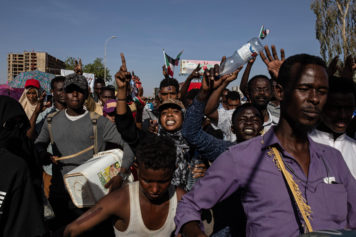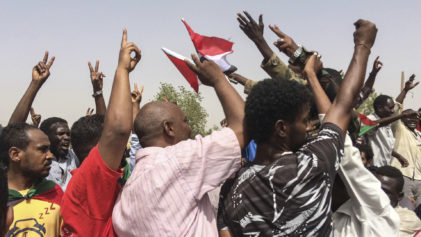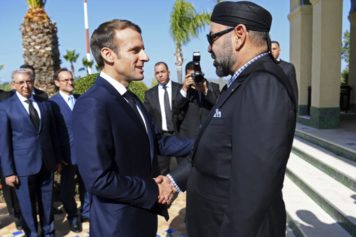As the West continues to train its focus on racism leveled at blacks by white people in the U.S. and recently in Europe and Israel, attention has increasingly been directed at the mistreatment of blacks by Arabs in Northern Africa and the Middle East.
For years, observers interested in probing a little more deeply in Iraqi society than the typical Western news stations found that the sizable black population in Iraq endures a form of virulent racism that African Americans haven’t seen in more than 50 years. Blacks there say they are regularly called “slave” and followed by groups of kids yelling epithets.
The Canadian academic Salim Mansur has claimed, “Blacks are viewed by Arabs as racially inferior, and Arab violence against blacks has a long, turbulent record.”
A piece broadcast on a radio station in the Netherlands took a deep look at the racism experienced by sub-Saharans Africans in Morocco, where they are viewed with such suspicion by the local Arabs that an Arab shopkeeper even warned the European reporter to stay away from the Africans because “they might eat you.”
The Africans are forced to live in a camp deep in the woods because they are unable to find jobs to make money—and when they do find work, they believe they are paid poorly because they are black. They are also frequently victimized by criminals who know the Africans can’t report it to authorities because they would face deportation.
“Arabs hate black people. And that is not from today. It is in their blood,” Aboubakr, a young man from Senegal who is hoping eventually to cross over into Europe, told the reporter for RNW (Radio Netherlands Worldwide). “Friends of mine were attacked with a knife. Bandits target us because they know we cannot go to the police, even if we are robbed and hurt. Having no papers, we will be caught instead. Blacks have no rights here.”
Aboubakr is also insulted that Moroccans “cannot believe many of us are Muslims too.” According to him, people are surprised when they see him kneeling for prayer. “They don’t think a black can be Muslim.”
Many Africans know that Arab states have not responded to atrocities in places like Darfur and Sudan because the people getting slaughtered are black Africans.
Black African guest workers in places like Egypt, Algeria and Libya have spoken about being publicly ridiculed and physically assaulted by Arabs. Egyptian writer Mona Eltahawy has written about watching a Sudanese girl being assaulted and tormented on the Cairo Metro, concluding, “We are racist people in Egypt and we are in deep denial.” She says the Arab world has ignored the suffering of Darfur because the victims are black. “We only pay attention when America and Israel behave badly.”
Meshael Alayban: Saudi Princess Accused of Enslaving Kenyan Maid
Because Europe has become more aggressive about patrolling ts borders specifically to keep the Africans in North Africa from slipping in, more migrants are stuck in places like Morocco, where they are forced to live in ghettos like the tent camp they created in the woods.
“Years ago, people had to get used to their presence, but now the relations are okay,” a shopkeeper in a mountain village near the forest told Radio Netherlands. When a tall, black man walked into the shop and purchased rice, yoghurt and other food, the shopkeeper said, “The authorities advise me not to sell to them, but I sell to anyone. We’re all the same.”
Ironically, even as the Arab countries continue to mistreat the black Africans, they also find themselves on the receiving end of racist treatment. The United Arab Emirates national soccer team just got an apology from the Asian Football Confederation for referring to them as “sand monkeys”—on the AFC website!
The “AFC apologizes for an editorial mistake in which the UAE National Team was inadvertently referred to by an inaccurate nickname on the AFC’s official website,” the organization said in a statement.
It said the comment was due to an “error, which was mainly because of referral to a popular web-based encyclopaedia” and that it “was corrected immediately after it was noticed.” The AFC said it was sorry for “any hurt this might have caused to the UAE Football Association and UAE football fans.”
The day before, the UAE federation secretary-general Yusuf Abdullah said in a statement, “We express our strong resentment over the use of this bad description by the AFC website.”
“What happened is unacceptable and shows disrespect to others. It is proof of racist attitudes that are starting to surface,” he said, demanding “a quick official apology.”
The UAE football team is usually referred to as “Al-Abyad”, or the whites, based on the color of their strip. But a report on the AFC website about a “friendly” (match) between the UAE and Uzbekistan on Friday described the team of the desert Gulf state as “sand monkeys.”


